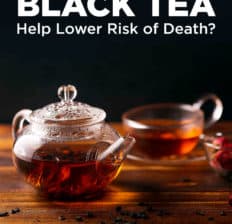This Dr. Axe content is medically reviewed or fact checked to ensure factually accurate information.
With strict editorial sourcing guidelines, we only link to academic research institutions, reputable media sites and, when research is available, medically peer-reviewed studies. Note that the numbers in parentheses (1, 2, etc.) are clickable links to these studies.
The information in our articles is NOT intended to replace a one-on-one relationship with a qualified health care professional and is not intended as medical advice.
This article is based on scientific evidence, written by experts and fact checked by our trained editorial staff. Note that the numbers in parentheses (1, 2, etc.) are clickable links to medically peer-reviewed studies.
Our team includes licensed nutritionists and dietitians, certified health education specialists, as well as certified strength and conditioning specialists, personal trainers and corrective exercise specialists. Our team aims to be not only thorough with its research, but also objective and unbiased.
The information in our articles is NOT intended to replace a one-on-one relationship with a qualified health care professional and is not intended as medical advice.
Drinking Black Tea May Lower Risk of Death, New Study Shows
September 20, 2022

Almost half a million adults participated in a six-year study to determine the association between tea intake and mortality. The results suggest that drinking at least two cups of black tea daily may reduce your risk of death from common conditions like heart disease and stroke.
Study Findings: Black Tea for Longevity
A study published in September in Annals of Internal Medicine evaluated the associations of black tea consumption with all-cause and cause-specific mortality. Researchers from the National Cancer Institute provided baseline questionnaires to 498,043 men and women from the U.K.
Participants indicated their tea intake and then conducted follow-ups after a median period of 11.2 years.
Results show that higher tea intake was modestly associated with lower all-cause mortality risk among adults who drank two or more cups of black tea daily. Tea consumption also reduced the risk of cause-specific mortality from cardiovascular disease, ischemic heart disease and stroke.
Researchers also found that results of tea drinking were similar whether or not participants also consumed hot coffee, and genetic scores for caffeine metabolism did not impact the findings.
What It Means
This isn’t the first time that tea consumption has been evaluated for its effects on mortality, but usually researchers study green tea because of its antioxidant properties. Some studies suggest that the association between black tea consumption and mortality is weak, with no clear trends across categories of consumption.
However, we know that black tea is also considered a high-antioxidant food, and evidence that black tea can lower mortality risk, as indicated in this recent study, is promising.
This study suggests that drinking two cups of black tea daily can have a significant impact on your health, helping reduce your risk of death generally and when associated with common conditions like cardiovascular disease.
Other Black Tea Benefits
How does black tea lower mortality risk? It’s loaded in polyphenols and antioxidants that impact several aspects of human health.
Black tea benefits include its ability to help:
- lower blood pressure
- improve cholesterol levels
- fight cancer
- reduce risk of diabetes
- improve blood sugar levels
- reduce risk of stroke
- relieve digestive issues
- fight bacterial infections
- reduce cortisol and other stress hormones
- improve mental alertness
- alleviate headache pain
To experience the perks of drinking black tea, be sure to let the leaves (which are ideally organic and loose) steep for at least two minutes. This ensures that you get the beneficial compounds in your tea that fight oxidative stress and support longevity.
Conclusion
- A study published in September in Annals of Internal Medicine found that black tea consumption was linked to a reduced risk of all-cause and cause-specific mortality.
- Results suggested that higher black tea intake was modestly associated with lower all-cause mortality risk among adults who drank at least two cups per day. Tea consumption also seemed to reduce the risk of cause-specific mortality from cardiovascular disease, ischemic heart disease and stroke.
- In addition to this major benefit of black tea highlighted in the study, drinking it can also improve cholesterol levels, reduce the risk of diabetes, fight cancer and relieve digestive complaints.



